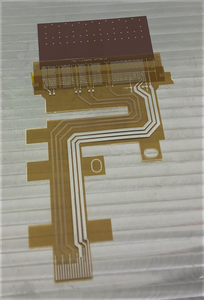DOTTORATO DI RICERCA "Innovative strategies for low material detector systems"

Borsa di Dottorato disponibile nel prossimo bando 40° ciclo, dal titolo "Innovative strategies for low material detector systems".
Abstract:
A key area in the high-energy physics experiments is the simulation of the effect that the detector systems and its advanced packaging have on the particle scattering, thus affecting the intrinsic tracking efficiency.
Recently, for the future ITS3 upgrades of ALICE a drastic reduction of material budget was implemented in the closest tracking layers to the interaction point. These principles will be further refined for the ALICE 3, where the requirements of extremely good tracking resolution and to preserve the excellent PID capabilities of the present experimental set-up, are especially needed to reconstruct rare probes at very low transverse momentum.
The extreme minimization of material budget requires thorough considerations in aspects such as mechanical stability, the need of a custom design for the cabling and support structures.
The PhD candidate will be challenged on how to effectively apply those principles to a subpart of a system that needs to be feasibly built. The Phd should assess the impact of his/her assembly decisions on the track reconstruction efficiency for the whole detector volume.
The PhD candidate should explore several mock-up configurations for the system detector+cables+structure.
Through the aid of GEANT 4 based simulations as well as data collected by the current ALICE ITS2, the mock-ups will be compared both in terms of track reconstruction and ease of assembly with the techniques available at the institutes (FBK and University of Turin).
Ideally, at the end of the PhD he/she should be able to build in FBK a proof of concept based on a sub-system of his/her own design, implementing at least a modular detector with its custom packaging. Curved geometries exploiting stitched sensors could also be considered.
The R&D topics of the PhD will include: Monte-Carlo simulations, CAD design, bonding technologies, mechanical assemblies and custom flexible electronics.
During the course of the PhD, the candidate will be supported by the team of University of Turin that has had a long-standing collaboration and leading roles in ALICE and by FBK, a key silicon research laboratory that has built detectors and/or systems for several CERN experiments and space missions such as AMS and HERMES-SPIRIT.
- Esperimentazioni II (corso A) (FIS0112)




